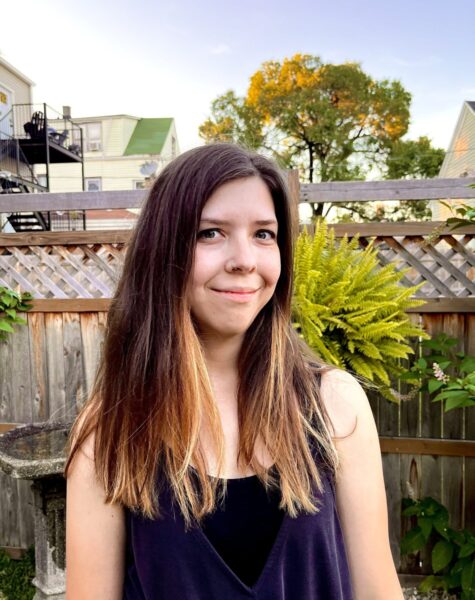I like how the story focuses on the girls—the boyfriend is just “the boyfriend.” But could you tell this story without him?
For a bit of background, this story was originally prompted by SmokeLong Summer writing exercise twenty-five, to write a one-paragraph draft “furiously, sloppily, without punctuation.” So the first draft was one run-on sentence, and it was always about our teenage narrator learning that her boyfriend has hooked up with someone else and reacting unexpectedly. A couple days later, the task was to write a draft with “a narrator telling a story to an unnamed ‘you’,” and that was when it clicked for me that our narrator longed to talk to Mia about what happened with the boyfriend and Heather. Neither the run-on sentence version or the “you” version stuck, clearly, but those writing tasks lead me to the heart of the story.
The boyfriend has always been there as a catalyst to the narrator’s emotional journey, but another thing that compels me about the boyfriend, and another reason I feel he’s integral, is that he reinforces the intimacy and significance of the female friendships. As we learn in the story, our narrator had a deeper and more intimate connection to Mia than she does to her boyfriend, and even though the boyfriend hooked up with Heather, our narrator might actually be the one with the deeper connection to her, as well.
The narrator tells it, but this is really Mia’s story. Would Mia tell her own story differently?
I feel like we can trust that our narrator is being honest to her own memory, but obviously our narrator will never know how Mia remembers everything, or how Mia might recall a shared memory at any given time. After all, our narrator would probably tell her own story differently on a different day or under different circumstances, just like any of us would.
From childhood, the girls were “barreling towards this inevitability.” Do you think it came quicker than they might have expected?
Forgive me for answering this question in a roundabout way. While I was in high school, in suburban Michigan, I knew of at least ten kids who died by suicide, a heroin overdose, or an accident. Siblings of kids in my class. A friend of a friend who I’d chat with on AIM. The fastest runner in gym class. The lead in the school musical. And on and on. At times it felt like something was coming for all of us, like it would be a miracle if anyone grew up.
I don’t think that our narrator anticipated Mia’s death or predicted it. But I think that sometimes, when we are grappling with something as horrible and bottomless as unexpected death, there can be a feeling like “I should have known, somehow, that this terrible thing was going to happen,” because it’s hard to imagine a version of reality where it hasn’t happened, where things are just okay and the person you’ve lost is alive and well. I think our narrator is trying to decide what feels worse, the idea that Mia was always going to die at the same time and in the same way, or the idea that any small action along the way could have saved her.
Mia repeats the myth that hair and fingernails continue to grow after death. The narrator says she is wrong, “everything stops.” What has stopped for the narrator?
Their shared memories become our narrator’s alone, and the imagined future of their friendship stays just that, imagined. All the conversations our narrator wants to have with Mia have nowhere to go. There’s probably a sequel to this story where our narrator tells someone else the news about her boyfriend and Heather, but it won’t feel the same. I am always optimistic for my characters, so I think our narrator will have other great friends in her life (maybe Heather!) and I think she’ll find healthy ways to cope with her grief, but I also think she lost something she’ll never find again.
There is fire and rain in this story. Are these two opposites connected here?
Oh, absolutely, although maybe they’re connected in the same way that everything is connected in the great push-pull of the universe. And maybe they’re not so much opposites here in the sense that they clash against each other, but opposites in the sense that they offer two ends of a spectrum, creating balance. Kind of like love, or friendship.



 The core workshop of SmokeLong Fitness is all in writing, so you can take part from anywhere at anytime. We are excited about creating a supportive, consistent and structured environment for flash writers to work on their craft in a community. We are thrilled and proud to say that our workshop participants have won, placed, or been listed in every major flash competition. Community works.
The core workshop of SmokeLong Fitness is all in writing, so you can take part from anywhere at anytime. We are excited about creating a supportive, consistent and structured environment for flash writers to work on their craft in a community. We are thrilled and proud to say that our workshop participants have won, placed, or been listed in every major flash competition. Community works.